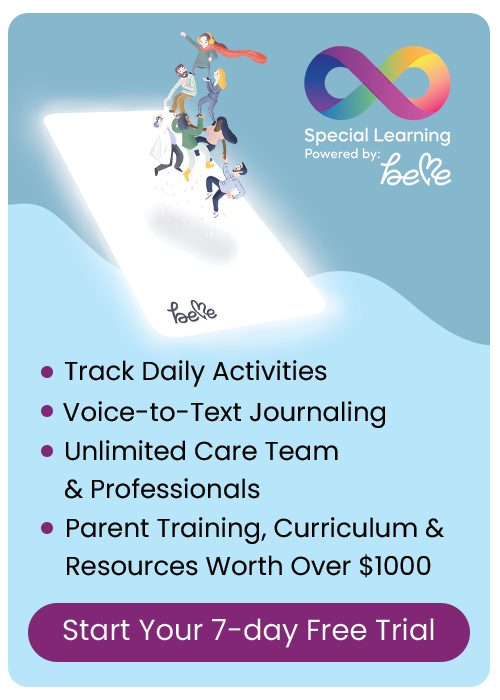Blog Categories
- ADHD
- Applied Behavior Analysis
- Autism Awareness
- Autism Service Providers
- Case Studies
- Dignosis
- Classroom Management
- Credentials
- Ethics
- Family Matters
- FAQs About LIVE Events
- Financial Planning
- Holiday Planning
- IEP's
- Panelists
- Private Equity in Autism & ABA Industry
- Psychopharmacology
- Sensory Processing Disorder
- Speech and Communication
- Subject Matter Experts
- Summer Planning
- Transition Planning
Teaching Your Teen to Grocery Shop
Expert Name: Harry S. Margolis
Expert Title: Co-Founder
Company Name: Academy of Special Needs Planners
Company URL: www.specialneedsanswers.com
Short Bio: A co-founder of the Academy of Special Needs Planners, Harry S. Margolis practices estate, elder law and special needs planning with Margolis & Bloom, LLP, in Boston, Massachusetts.
Using A Special Needs Trust To Plan For Children With Special Needs
Most parents of kids with disabilities face a lot of challenges when it comes to estate planning.
A few of their most common concerns are:
- How to create a trust fund for their child while ensuring that he will always have access to important public benefits
- How to ensure that the funds are properly managed
- How to ensure that the siblings and other family members are not overly burdened with the responsibility of caring for the disabled child
- How to come up with a fair estate sharing plan that will be equally advantageous to all their children
- How to ensure that there will always be enough funds to support the needs of their disabled child.
Most parents usually decide to leave their estate to their other children without leaving anything directly to their child with a disability. The rationale for this is the perception that it would be unwise to leave the funds with the disabled child since he is unable to effectively manage the money himself, and doing so may also cause him to lose his benefits.
This decision, made under the common misconception that a disabled child will be better off under the care of his siblings and that this will ensure that their child with a disability is able to access available benefits, while seemingly sound, isn’t always the best option.
In actuality, experts in this area discourage this approach for the following reasons:
- In most cases, public benefit programs are inadequate and will not cover all the financial needs of the disabled child
- The child’s circumstances may change over time and the existing plan may not be as effective in the future, hence the need for several fall-back or alternative plans
- Leaving other children with the responsibility of taking care of their disabled sibling may be too much of a burden and may cause undue strain among family members.
A better alternative that can effectively address these problems and concerns is to set up a Special Needs Trust. In short, a Special Needs Trust will ensure that all the financial needs of the disabled child are met, while preserving the child’s eligibility to receive public benefits such as health care/MassHealth benefits, supplemental income, public housing, and other valuable benefits.
Here is a short overview that defines and explains the different aspects and functions of a trust:
• A trust is a legal arrangement whereby one person (trustor) assigns another person (trustee) to manage property and assets for the benefit of a particular person – the beneficiary. In this case, a fiduciary or trust relationship is created and the trustee is legally bound to abide by the terms of the trust agreement.
• Trust funds usually fall into two categories: One is called a self-settled trust. Under this category, the trustor creates a trust for his own benefit. The second category, called a third-party trust, is a more common arrangement whereby one person creates a trust for the benefit of another person.
• The terms and rules of a trust are usually tailored according to the terms of the public benefit program and also to the specific situation and circumstances of the parties involved. In many ways, the available public benefit programs dictates the treatment of the trust with regards to the subject of creditor protection.
• As a general rule, a person cannot create a self-settled trust for his own benefit and also receive protection against creditors’ claims (South Dakota, Delaware, Alaska and a few other states fall under the exception). In this type of trust, the funds can still be held accountable and subject to claims under MassHealth, SSI, and other public benefit programs.
• In certain cases however, SSI provides “safe harbors” that will allow a person to create a self-settled supplemental needs trust, also referred to as D-4A trust or “Payback” trusts. Under a Payback Trust, state expenditures are paid back only to the extent and under the condition that there will be sufficient funds in the trust.
• More parents of children with disabilities prefer Third Party Special Needs trust as they are more liberal and forgiving compared to self-settled special needs trusts. This is particularly beneficial as a Third Party Special Needs Trust do not require the inclusion of a payback provision.
The material covered above is provides only a surface-level overview of this very complex and critically important topic. If you wish to learn more about special needs trust funds, click here to receive a complementary issue of a Legal Guide called “Special Needs Planning and Special Needs Trusts”




